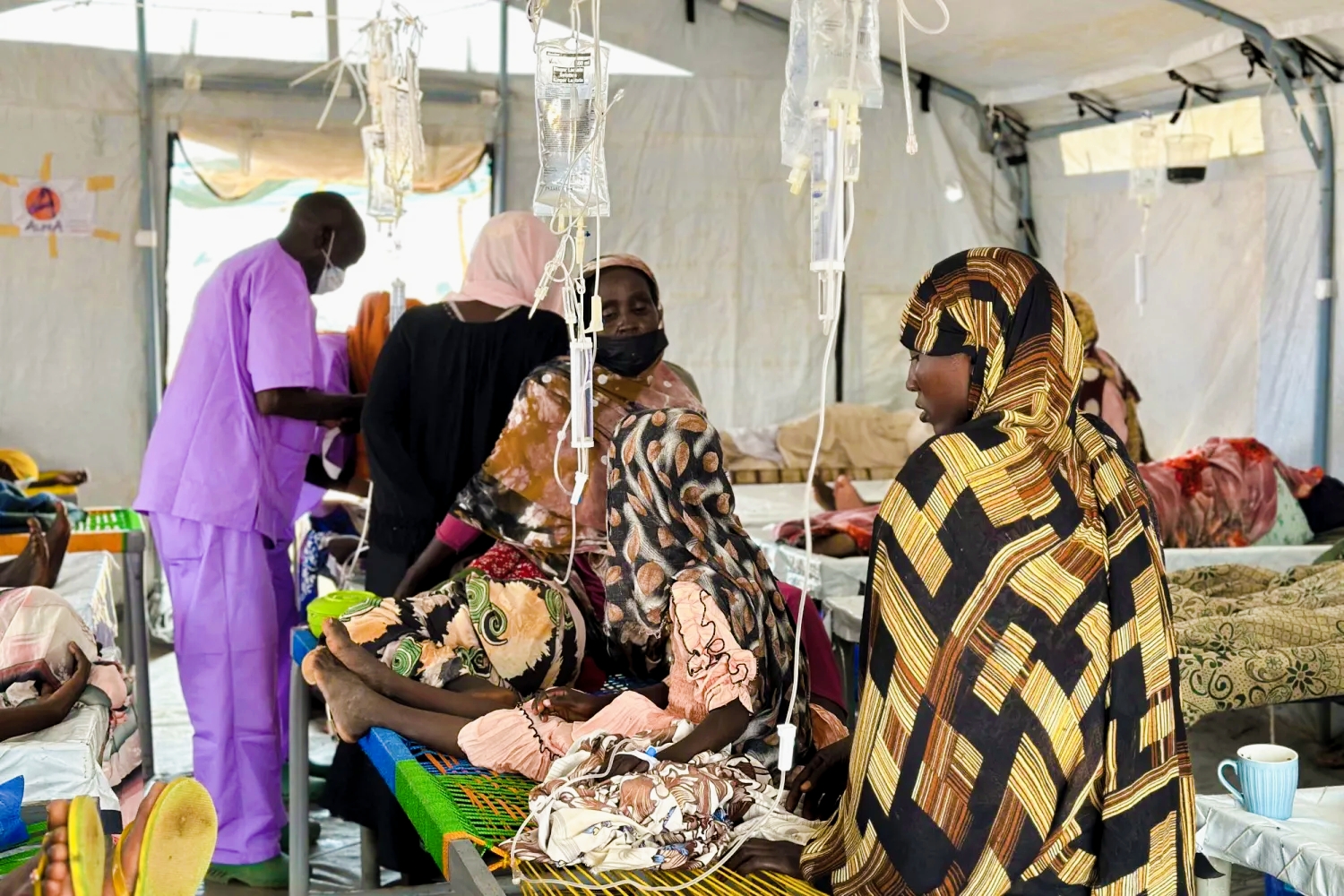The organization "Doctors Without Borders" revealed that more than 2200 suspected cases of cholera have been recorded in Central Darfur alone since mid-July, along with 39 recorded deaths in its medical facilities, amid deteriorating humanitarian and health conditions.
In a shocking report, the General Coordination of the Displaced and Refugee Camps in Sudan announced the registration of 416 new infections in the past few days, including 12 deaths, raising the total number of infections in the Darfur region to more than 11,000 cases and 441 deaths since the outbreak began in June.
* Rapid spread in several areas
According to the report, the region is witnessing a steady outbreak of the epidemic, with numbers increasing daily since July.
The disease has spread to wide areas, including:
_ Zalingei and the surrounding areas
_ Jebel Marra in Central Darfur
_ Nyala in South Darfur
_ New Reservoir in Shairiya locality in East Darfur
_ Displaced persons camps, which are among the most affected areas, amid unprecedented spread of the disease.
* Humanitarian efforts amid compounded crises
In the face of this disaster, humanitarian organizations, local volunteers, emergency rooms, and local authorities are making tremendous efforts to contain the epidemic, but these efforts face huge challenges, most notably a shortage of medical supplies, weak services in isolation centers, and the spread of other diseases such as malaria, malnutrition among children, and severe hunger.
* "Forgotten disaster" .. and a call to the international community
The report described the scene in Darfur as "a real nightmare and a forgotten humanitarian disaster," noting that the international community continues to ignore this tragedy in a country torn apart by war, famine, epidemic outbreaks, and shortages of food and medicine.
Organizations warn that the continuation of the situation as it is may lead to a complete collapse of the local health system, especially given the difficulty of accessing remote areas suffering from weak infrastructure and lack of basic services.

